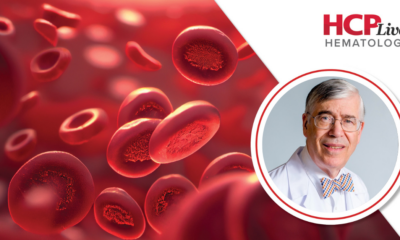Science
Researchers Uncover Lithium’s Potential in Alzheimer’s Treatment

Researchers at Harvard Medical School have revealed that low levels of lithium in the brain could significantly contribute to the onset of Alzheimer’s disease. The findings, published in the journal Nature on March 15, 2024, suggest that lithium supplementation might lead to innovative treatments for this debilitating condition.
The study highlights that lithium, a naturally occurring metal found in certain foods and drinking water, is notably depleted in the brains of individuals experiencing early-stage memory loss. This discovery aligns with previous research correlating lithium with reduced rates of dementia. According to the study’s lead author, Bruce Yankner, a professor of genetics and neurology at Harvard, the results could be a crucial advancement in Alzheimer’s research.
Yankner explained to The Washington Post that administering a small dose of lithium orotate to aging mice with impaired memory resulted in a remarkable improvement, effectively restoring their cognitive functions to those typical of much younger mice. “It seems to somehow turn back the clock,” he stated.
The significance of this research goes beyond laboratory results. Li-Huei Tsai, a renowned neuroscientist at MIT, acknowledged the study’s implications, emphasizing that while genetics and lifestyle factors also influence Alzheimer’s, Yankner’s research provides a critical piece of the puzzle.
As the scientific community reacts to these findings, experts advocate for further investigation. Matt Kaeberlein, a noted biologist from the University of Washington, remarked on the potential of lithium orotate, noting, “The obvious impact is that because lithium orotate is dirt cheap, hopefully we will get rigorous, randomized trials testing this very, very quickly.”
Despite the promising nature of this research, challenges lie ahead. Yankner expressed concerns regarding the Trump administration’s freeze on federal funding for Harvard, stating that it could impede progress in advancing this vital research.
The study’s findings pave the way for exciting developments in Alzheimer’s treatment. As researchers explore the therapeutic applications of lithium, the hope is that this common metal might offer new pathways to combat one of the most challenging ailments of our time.
-

 Technology5 months ago
Technology5 months agoDiscover the Top 10 Calorie Counting Apps of 2025
-

 Technology2 weeks ago
Technology2 weeks agoOpenAI to Implement Age Verification for ChatGPT by December 2025
-

 Health3 months ago
Health3 months agoBella Hadid Shares Health Update After Treatment for Lyme Disease
-

 Health3 months ago
Health3 months agoAnalysts Project Stronger Growth for Apple’s iPhone 17 Lineup
-

 Health3 months ago
Health3 months agoErin Bates Shares Recovery Update Following Sepsis Complications
-

 Technology5 months ago
Technology5 months agoDiscover How to Reverse Image Search Using ChatGPT Effortlessly
-

 Technology3 months ago
Technology3 months agoElectric Moto Influencer Surronster Arrested in Tijuana
-

 Technology2 months ago
Technology2 months agoDiscover 2025’s Top GPUs for Exceptional 4K Gaming Performance
-

 Technology5 months ago
Technology5 months agoMeta Initiates $60B AI Data Center Expansion, Starting in Ohio
-

 Technology5 months ago
Technology5 months agoRecovering a Suspended TikTok Account: A Step-by-Step Guide
-

 Health5 months ago
Health5 months agoTested: Rab Firewall Mountain Jacket Survives Harsh Conditions
-

 Lifestyle5 months ago
Lifestyle5 months agoBelton Family Reunites After Daughter Survives Hill Country Floods





















